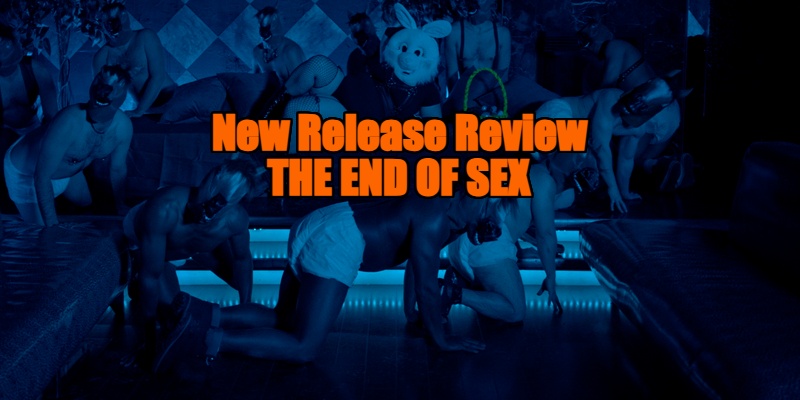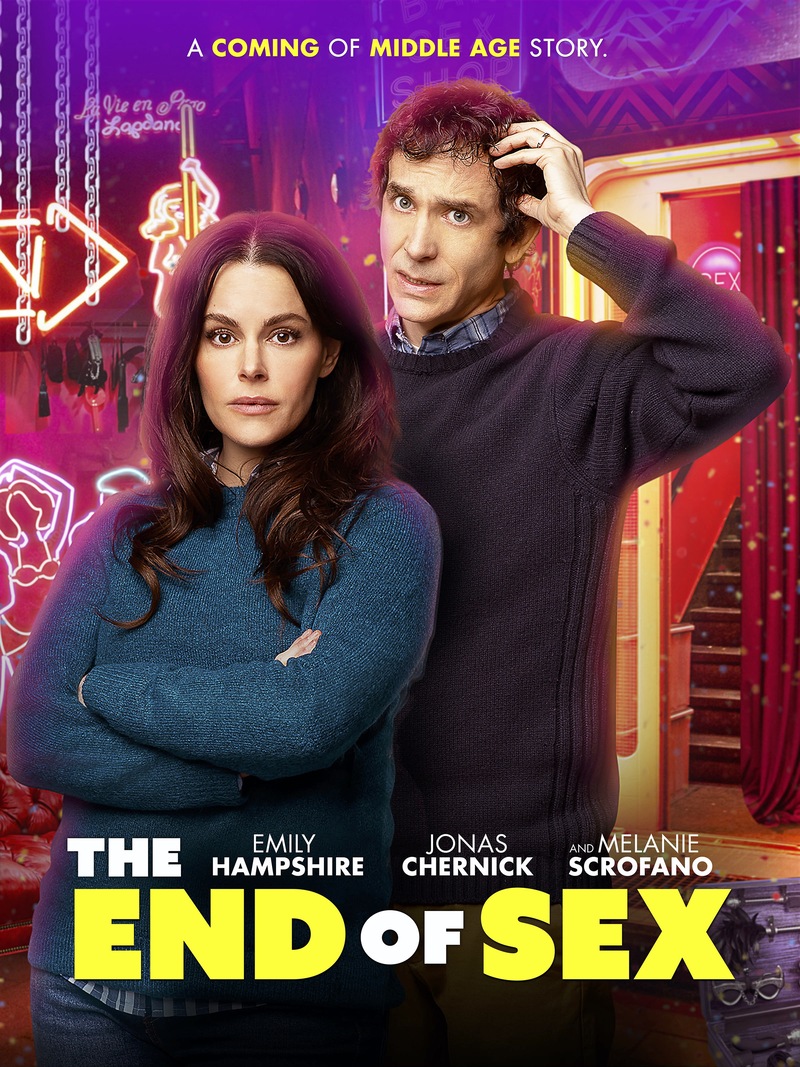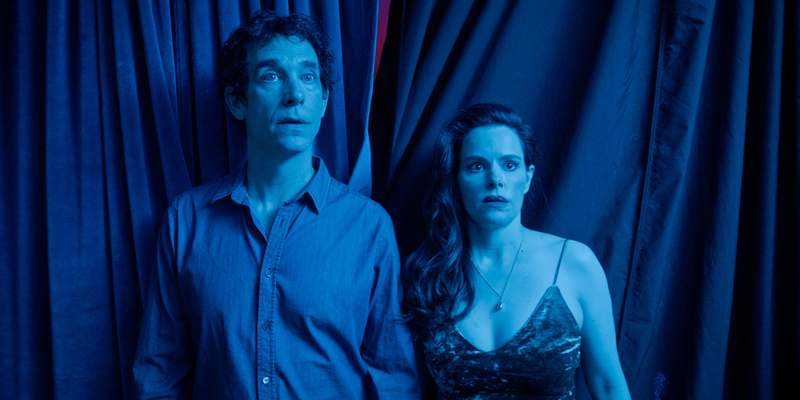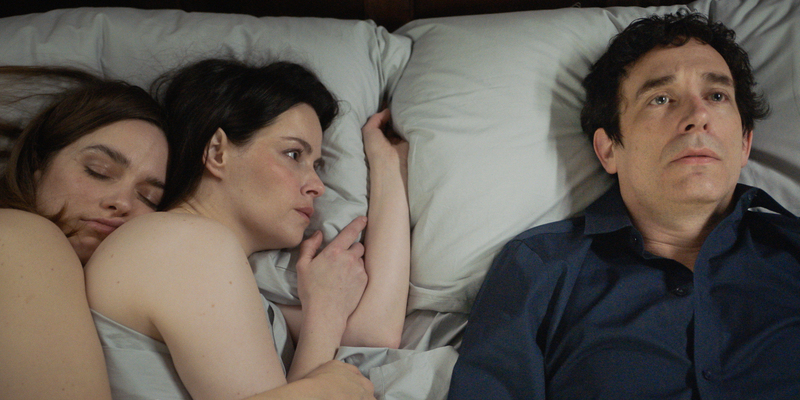
Review by
Eric Hillis
Directed by: Sean Garrity
Starring: Emily Hampshire, Jonas Chernick, Lily Gao, Melanie Scrofano, Gray Powell

The End of Sex is the sort of raunchy rom-com Judd
Apatow might make if he ever allowed an editor to do their job. Unlike
Apatow's rambling films, which quickly lose sight of their high
concept setups and devolve into tedious improv workshops, director
Sean Garrity's comedy is well-paced, getting in and out of its
various comic set-pieces without overstaying its welcome.

The script was penned by Jonas Chernick, who also plays the
film's leading man, Josh, husband to Emma (the Tina Fey-esque
Emily Hampshire) and devoted father to a pair of young
daughters. When Josh and Emma pack their sprogs off to camp for a
week, the former is apprehensive about untying his apron strings and
letting his kids free, while the latter sees it as a long overdue
chance to revitalise their sex life. It's so long since Josh and Emma
got hot and heavy that they find they've lost the spark, with an
attempt at sex ending with both faking orgasms.
Worried that this might be a sign of bigger problems, Josh and Emma
spend the rest of the week trying to resuscitate their comatose sex
life through a series of adventures. Emma invites a bisexual
co-worker, Wendy (Melanie Scrofano), for a threesome, which
results in one of the three playing gooseberry (no prizes for guessing
who). The pair visit a sex club, leading to a very uncomfortable
encounter with a family member. They even turn to drugs in a vignette
which lapses into dizzying camerawork clichés.

As Josh and Emma struggle to physically connect, they each begin to
consider other offers. Emma is pursued by Marlon (Gray Powell),
an old college classmate who has no filter when it comes to telling
her how she fuelled his dorm room fantasies. Josh confides in Kelly
(Lily Gao), a hip young colleague whose mocking of his uptight
ways may conceal a secret crush.
There's nothing here that you haven't seen in a dozen other sex
comedies, and some of the targets of comedy depressingly suggest that
the Anglo-Saxon world is still as uptight about sex as it was 50 years
ago. Some of the scenarios here are essentially bits from the likes of
the 1970s Confessions series rejigged for a
progressive-in-theory-but-as-conservative-as-their-grandparents-in-practice
millennial audience, which makes them all too predictable. But what
keeps us invested in the plight of Josh and Emma is how likeable and
relatably weighed down by expectations the pair are. Chernick and
Hampshire have a natural chemistry that makes us root for their
characters, and there's something sweet if old-fashioned about the
film's message that some parents get more fulfilment from raising kids
than making babies.

That said, there's something regressive about how the film pokes fun
at unconventional lifestyles in order to strengthen the marriage of a
very middle class straight couple. The film's two gay characters –
Wendy and Kelly – take up the dated roles of the predatory lesbian and
the sexually promiscuous bisexual woman who really just wants a loving
relationship with a steady if staid man. Scrofano can't do much with
her broad character, but Gao gives the film's standout performance – I
found her an utterly compelling presence, despite frowning at the arc
of her character.


